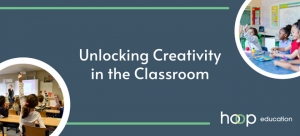In the world of healthcare, where demand can be quite the rollercoaster, adaptability is key. This is where nursing agencies come into play, offering a dynamic and rewarding career path for those willing to embrace its flexibility. As an agency nurse, you do not work under a contract of permanent employment. The agency nurses have a contract for services, that means they are offered work on a temporary basis, be it a longer-term contract booking, or adhoc shift requirement. Whilst we understand it may not be for everyone, the benefits of agency nursing are undeniable.
Flexibility
Perhaps the most apparent advantage of agency nursing is its flexibility and the impact that has on getting a balance between working and personal life. Agency nurses have the autonomy to choose when, where, and how often they work, depending on the work available. Whether it's a desire to explore new cities, accommodate personal commitments, or simply vary their work environment, keeping their skills up to date, agency nursing allows nurses to craft a schedule that fits their lifestyle. This flexibility can be particularly appealing for those with family responsibilities, individuals pursuing further education, or nurses nearing retirement who wish to continue practising on their terms.
Diverse Work Environments
Agency nursing offers a scope of opportunity to work in various healthcare settings and network with new professionals. This exposure not only enriches their clinical skills but also broadens their perspectives, fostering adaptability and resilience. Such varied experiences can be invaluable for professional growth and career advancement.
Competitive Compensation
Agency nursing comes with higher pay rates compared to those in permanent staff nurse positions. Agency nurses often receive premium pay to compensate for the temporary nature of their employment, as well as for the flexibility and adaptability required. With more benefits than ever before, agency nursing has never looked so attractive. For nurses looking to maximise their earning potential while maintaining control over their schedules, agency nursing presents an attractive option.
Professional Development
Continuous learning and skill development are integral to nursing practice. Agency nursing offers abundant opportunities for professional growth. Moreover, agency nurses frequently encounter challenging cases and complex patient scenarios, honing their critical thinking and problem-solving abilities. With each assignment, agency nurses have the chance to refine their skills and become more well-rounded healthcare professionals. They are exposed to different interpretations of regulations and policies and are able to see variety in terms of care delivery, allowing them to support clients to make positive changes where required.
Work-Life Balance
Achieving a healthy work-life balance is paramount for overall well-being to all of us. Agency nursing empowers nurses to prioritise self-care and personal pursuits alongside their professional responsibilities. By having control over their schedules, agency nurses can better manage fatigue, prevent burnout, and nurture their physical and mental health. Whether it's scheduling time for hobbies, spending quality moments with loved ones, or pursuing passions outside of nursing, agency nursing supports a more balanced and fulfilling lifestyle.
Ready to unlock the benefits of agency nursing? Join our team today and experience flexibility, competitive pay, and opportunities for professional growth, all whilst being looked after by a team who really cares. Get in touch with us on 02922 400519 to learn more about how to get the ball rolling!
Unlocking Creativity in the Classroom
In the dynamic landscape of education, fostering creativity has emerged as a cornerstone skill essential for success in the 21st century. As educators, there is a profound responsibility not only to impart knowledge but also to nurture the creative potential of our students.
Creativity isn't just about artistic expression or thinking outside the box; it's about cultivating a mindset of curiosity, exploration, and problem-solving. In an era defined by rapid technological advancements and unprecedented global challenges, the ability to innovate and adapt is more critical than ever. By fostering creativity in the classroom, we empower students to become lifelong learners, and innovative problem-solvers.
1. Foster a Culture of Creativity
Creating an environment where creativity is valued and encouraged is essential for unlocking the creative potential of students. Foster a classroom culture that celebrates diverse perspectives, encourages risk-taking, and embraces failure as a natural part of the creative process. Encourage students to explore, experiment, and think outside the box, fostering a sense of curiosity and wonder.
2. Provide Open-Ended Challenges
Present students with open-ended challenges and projects that allow for multiple solutions and interpretations. Provide opportunities for student-led inquiry and exploration, giving them the freedom to pursue topics and ideas that spark their interest. Encourage interdisciplinary connections and real-world applications, allowing students to see the relevance and impact of their creative endeavours.
3. Incorporate Arts and STEM Education
Integrate arts and STEM education into the curriculum to foster creativity and innovation. Engage students in hands-on, project-based learning experiences that combine artistic expression with scientific inquiry and technological innovation. Encourage cross-disciplinary collaboration and problem-solving, empowering students to apply their creativity to solve real-world challenges.
4. Encourage Divergent Thinking
Promote divergent thinking by asking open-ended questions, challenging assumptions, and exploring multiple perspectives. Encourage students to brainstorm ideas, generate alternative solutions, and explore unconventional approaches to problem-solving. Create opportunities for collaborative brainstorming and idea-sharing, fostering a culture of collaboration and collective creativity.
5. Embrace Technology as a Creative Tool
Harness the power of technology as a creative tool for expression and innovation. Integrate digital media, multimedia storytelling, and creative software tools into the curriculum, allowing students to explore new modes of creative expression. Encourage students to use technology to collaborate, communicate, and showcase their creative projects to a wider audience.
6. Provide Time and Space for Creativity
Allocate dedicated time and space for creative exploration and expression in the classroom. Create a designated "creative corner" or maker space where students can engage in hands-on, creative activities. Encourage students to pursue passion projects and explore their interests outside of the constraints of traditional academic subjects.
Unlocking creativity in the classroom is essential for inspiring innovation and preparing students for success in an increasingly complex and dynamic world. By fostering a culture of creativity, educators can empower students to unleash their creative potential and become problem-solvers.



